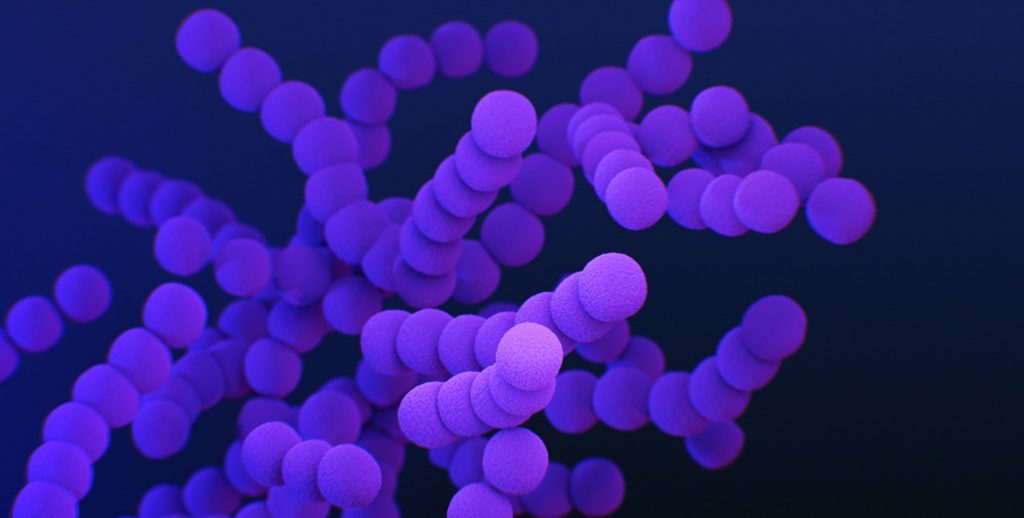Is Mycoplasma genitalium gaining antibiotic resistance?
For the most part, sexually transmitted infections can be easily treated. The vast majority respond well to antibiotics, and most other infections can be cured with effective treatments overseen by a doctor.
But some infections are fighting back. Many bacteria are gaining an edge in the arms race between pathogens and pharmaceuticals.
And one of the bacteria that is getting an edge is one that most people haven’t even heard of: Mycoplasma genitalium.
So, what’s going on here? Keep reading to find out!

Worried that you might have Mycoplasma? Get tested today with Better2Know.
What is Mycoplasma genitalium?
Mycoplasma genitalium is a bacterial infection that passes from person to person through sexual activity, like unprotected sex (mostly vaginal and anal) and sharing sex toys.
While Mycoplasma genitalium is considered an STI, the bacteria that causes the infection can also be found in normal, healthy genital tracts. An infection occurs when these bacteria grow until they reach an imbalanced level.
The symptoms of Mycoplasma genitalium
Mycoplasma infections usually don’t produce any symptoms and often go unnoticed. However, when symptoms do appear, they can affect men and women differently.
In women, symptoms can include:
- Lower pelvic pain
- Unusual vaginal discharge
- Bleeding after intercourse
- Bleeding between periods
- Pain during sex
- Soreness when urinating
In men, symptoms include:
- Pain on urination
- Irritation around the tip of the penis
- Discharge from the urethra
In both sexes, there can be rectal infections after anal sex, with pain during defecation, a sense of incomplete defecation, and mucous or bloods secretions.
Effects of untreated Mycoplasma genitalium
Many cases of M. genitalium will clear by themselves. While most people can live with an appropriate level of Mycoplasma bacteria in their urinary tract, when these levels become unbalanced, the effects can seriously harm their overall health.
In women, a Mycoplasma infection can be associated with:
- Pelvic inflammatory disease (PID)
- Fertility issue
- Sexually associated reactive arthritis
- Premature birth
- Miscarriage
- Stillbirth
In men, the infection can be associated with:
- Long-term pain and swelling in the testicles (epididymitis)
- Sexually associated reactive arthritis
Is Mycoplasma gaining antibiotic resistance?
We often think of microorganisms like bacteria as small machines—chugging along, working in the same way every single time. Because we know how they work, we can develop effective treatments against them.
But bacteria are living organisms. If given the chance, they mutate and evolve to overcome their environment. And that is increasingly happening with infections all over the world including STIs.
Many infections we treat with antibiotics are increasingly resistant to our medicines. This is becoming a serious problem for health systems all over the world. The World Health Organization estimates that around 1.27 million deaths in 2019 were caused by infections that have developed resistance to antibiotics. These infections contributed to a further 4.95 million deaths.
We already see this in the world of STIs. Many strains of Gonorrhoea, a common bacterial STI, have developed antibiotic resistance. Although many clinical trials are developing new drugs to combat this issue, resistant forms of Gonorrhoea remain a concern.
But Gonorrhoea isn’t the only STI that has developed this resistance.
Mycoplasma genitalium has, in recent years, seen increasing antibiotic resistance in the UK. Several studies conducted on patients in Italy, Germany, Belgium, and China have observed many patients with strains of Mycoplasma genitalium with multidrug resistances, with some cohorts reaching as high as 100% of strains showing some degree of resistance.
According to one study that tracked the emergence of antibiotic resistance in all of Europe, literature published between 2012 and 2018 shows that macrolide resistance was increasing rapidly in the region, with many countries exceeding 50%. The macrolide family of antibiotics is therefore not a useful tool on its own, but there are not many other options available to us for successful treating M. genitalium.
Why is this happening?
While the situation is complex, the main cause of the rise of antimicrobial resistance is the human misuse of antibiotics.
In short, we use antibiotics too much. These medicines are often overprescribed (used in situations where they are not necessary) or misused (treatment plans are inconsistent or left uncompleted). This allows certain strains of bacteria to develop resistance through genetic mutation.
For example, the blanket use of azithromycin to treat infections like Chlamydia, Gonorrhoea, or simply when the bacteria causing symptoms is unknown exposed Mycoplasma genitalium to it, allowing the bacteria to develop resistance.
The diminishing efficacy of antibiotics in treating many conditions, from E. coli to Staphylococcus aureus and pneumonia to candida, will decrease health outcomes for millions of people worldwide.
How do I avoid getting antibiotic-resistant Mycoplasma?
The best way to avoid getting an STI is to practice safe sex. This means using condoms and other barrier methods of contraception to prevent the spread of pathogens.
If you are diagnosed with an STI, follow your doctor’s treatment plan as strictly as possible. Do not self-medicate. Do not take antibiotics unless you have test results available as you may inadvertently expose the wrong bacteria to the wrong antibiotic. This also means completing any course of medication you are prescribed. By doing this, you are ensuring the strain of bacteria you have is wiped out and will not be given the chance to develop resistance.
Once you have taken the antibiotics for Mycoplasma genitalium, you will probably be asked to do a follow-up test. This is essential to know if you have fully eradicated the bacteria, or if the antibiotic just suppressed it, and there still exists a risk of passing it on to someone.
Final thoughts
In the unfortunate scenario that you get an STI, you will first need to get tested to confirm your condition.
Better2Know offers many effective STI screens that can test you for various infections.
If you don’t know what to get tested for, or if you want to get a clear view of your sexual health, we recommend the Full Screen Home Test Kit, which tests for Mycoplasma along with six other common STIs.
Click the button below to order your test today.

Don’t leave your sexual health to chance. Know your STI status.
This article has been medically reviewed by Dr. Steve Chapman, 03/12/2024.
Categories
- Awards
- Bacterial Vaginosis
- Blood Tests
- Cardiovascular Health
- Cervical Cancer
- Chlamydia
- Condoms
- Covid-19
- Gardnerella
- Genital Warts
- Gonorrhoea
- Health and Wellness
- Hepatitis A
- Hepatitis B
- Hepatitis C
- Herpes
- HIV
- HIV (AIDS)
- Home Testing
- HPV
- Instant Testing
- MSM
- Mycoplasma
- News
- Non-Specific Urethritis
- PAP Smear
- Pre-Pregnancy
- Sexual Health
- STD Symptoms
- STD Tests and Screens
- STI Transmission
- Stigma
- STIs
- Swab Tests
- Syphilis
- Trichomonas
- Ureaplasma
- WSW
- Zika




